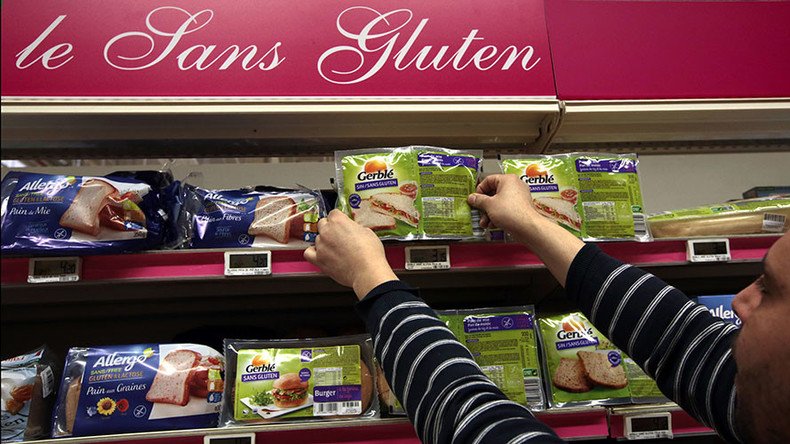Giving up gluten does more harm than good in more ways than you think – study

Going gluten free may not be the shortcut to getting ready for swimsuit season after all. While avoiding gluten is vital to those living with Celiac disease, everyone else can resume eating bread – and probably should, according to a recent study.
A study published in the Journal of Pediatrics found that giving up gluten may be more harmful for those not suffering from Celiac disease or wheat allergies than beneficial. The author of the study, Norelle Rizkalla Reilly of Columbia University’s Medical Center, points out that “Gluten-free packaged foods frequently contain a greater density of fat and sugar than their gluten-containing counterparts.”
#glutenfree wheat? Research aims to create new grains amid rise of #celiacdiseasehttp://t.co/ySj2VPd9QLpic.twitter.com/XwE8BiddDa
— RT America (@RT_America) March 24, 2015
“A GFD [gluten free diet] also may lead to deficiencies in B vitamins, folate, and iron, given a lack of nutrient fortification of many gluten-free products,” Reilly added.
The study found that many of the conceptions about the gluten-free diet are flawed. Although GFD is one of the only treatments for Celiac disease, 47 percent of Americans believe it is a fad. However, 25 percent nonetheless consume gluten free food. Why this is, no one really knows.
The study refers to a 2015 survey of 1,500 US adults that had adopted a gluten-free lifestyle. Though the majority reported having “no reason” for going gluten free, 26 percent believed that they were choosing a healthier lifestyle by doing so. The least common response to the survey was “I have gluten sensitivity.”
People believing that a gluten free diet is healthier may be mistaken in their assumptions, as the study found that consumers could be ingesting more harmful chemicals than they would if on less restrictive diets. For example, the study claims that “Arsenic is frequently present in inorganic form in rice, a concern for those on a GFD given that rice is a common ingredient in gluten-free processed foods.”
Eat insects as meat alternative - govt report https://t.co/2KqDhJJR2Wpic.twitter.com/S4YsMMJ5mY
— RT America (@RT_America) November 6, 2015
The boom in the gluten-free market that has resulted from these misconceptions has not necessarily helped those with Celiac either. For truly gluten-sensitive people, consuming wheat protein can trigger painful, sometimes very serious, gastrointestinal inflammation and other irritations.
Kristen Deschamps, who suffers from Celiac, described it to NPR as “severe stomach pain, like a very sharp stabbing — sometimes to the point where I can’t move for several hours.”
Deschamps explained that, while the expansion of gluten free products has generally improved her quality of life, the widespread adoption of the diet among the general populace has not.
“The biggest problem I experience is that restaurant servers don’t understand the difference between being celiac and going gluten-free as a lifestyle choice,” she explained. This has caused gluten to end up in her food, triggering a reaction.
A 2013 op-ed piece for Jezebel describes how the gluten-free trend is more damaging to the Celiac population than helpful. The author, Elissa Strauss, complains of not being taken seriously when discussing her gluten sensitivity, while lamenting a lack of knowledge about what it actually is.
She describes seeing gluten free food “stuffed alongside their gluten-containing counterparts in bakery displays. Considering even a few splashes of soy sauce, in which wheat is a minor ingredient, can trigger my celiac, a few crumbs of something not gluten-free is just not an option for me.”
Climate change reducing nutrition in staple foods - study http://t.co/bhXLsjTcfupic.twitter.com/fhjEGfqcGO
— RT America (@RT_America) May 8, 2014













